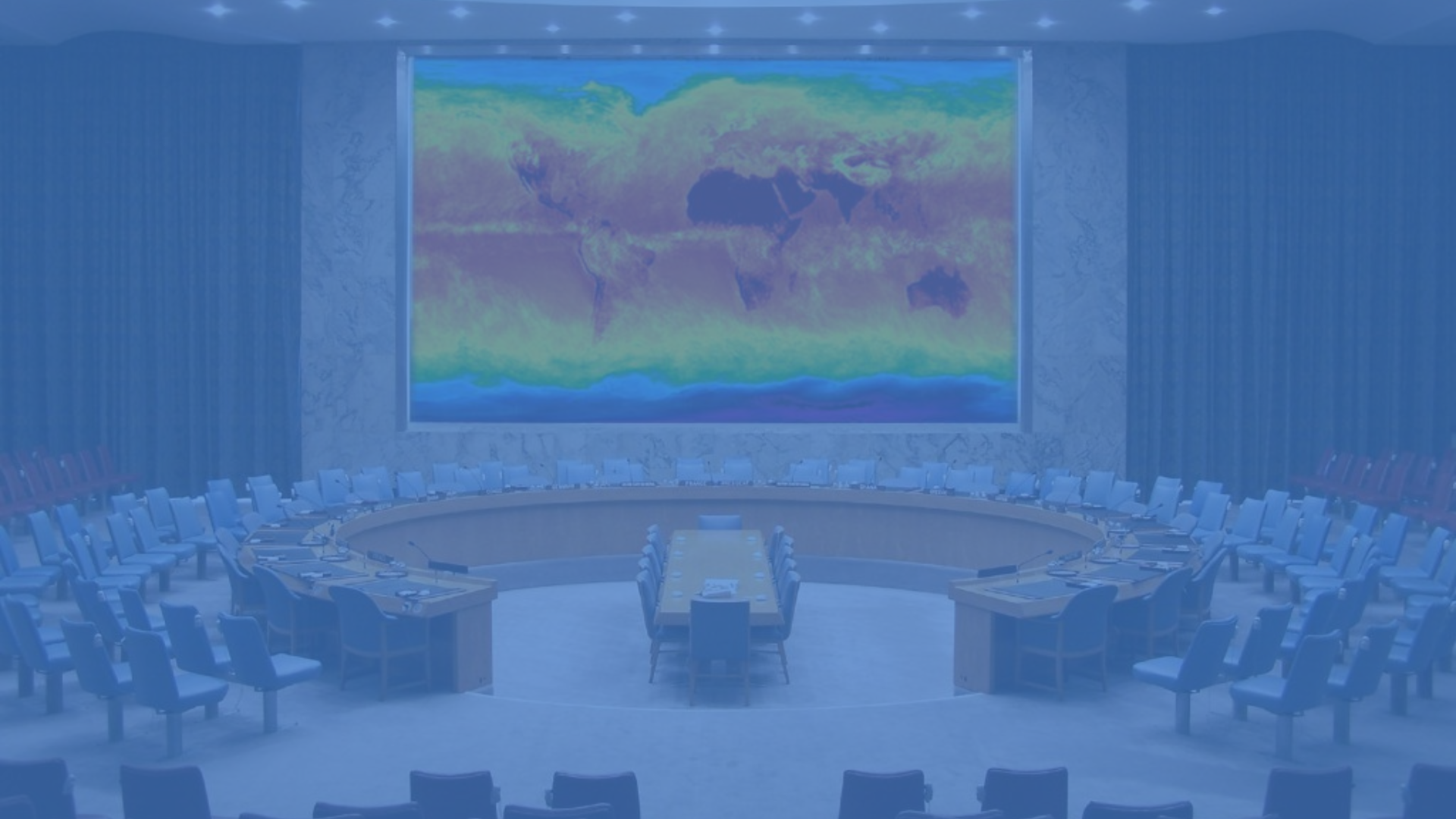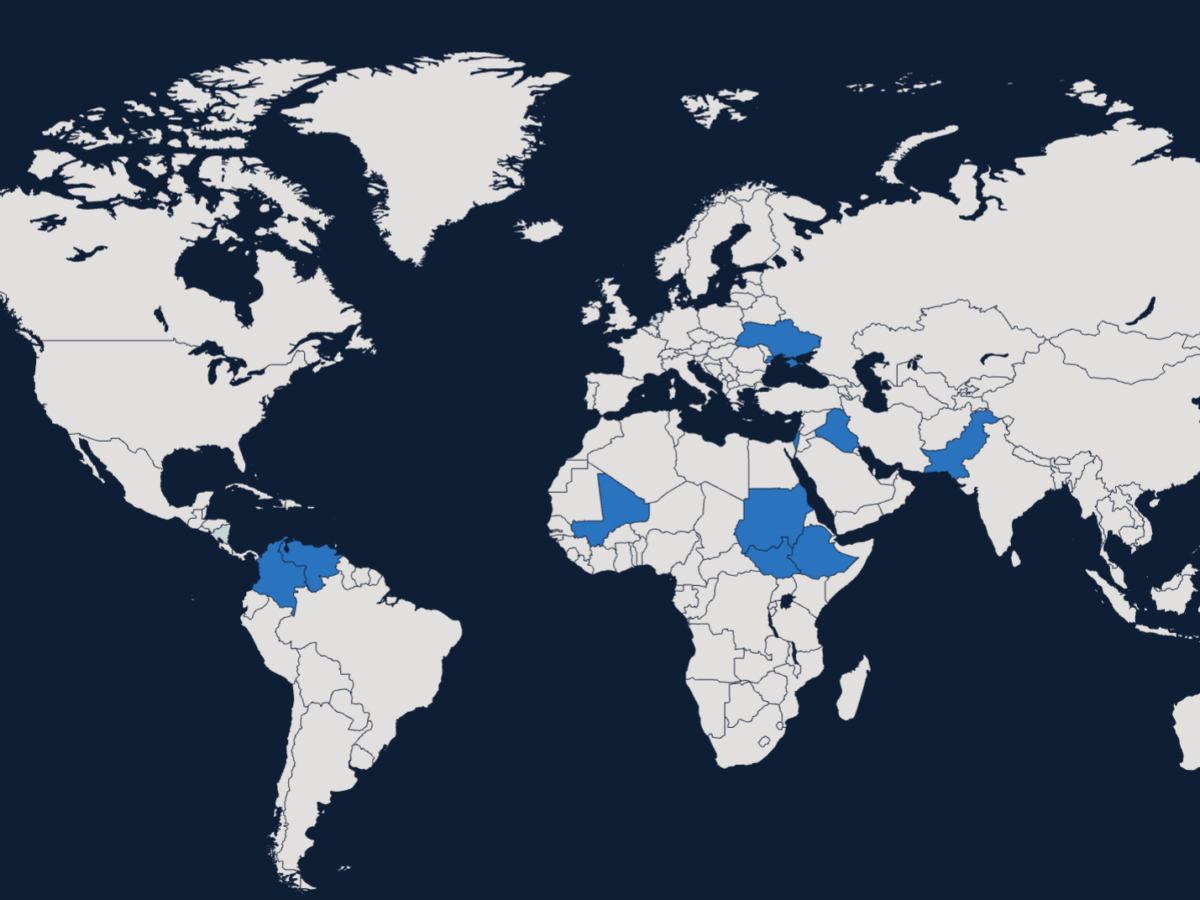Advancing Gender, Climate, and Security in the UN Security Council

In this policy brief, the Georgetown Institute for Women, Peace and Security presents recommendations for advancing gender, climate, and security in the UN Security Council and opportunities for Member States and other relevant stakeholders to drive progress on these interconnected challenges.
Despite growing recognition of how climate change multiplies risk and poses a threat to international peace and security, efforts to make climate change a standing item on the Security Council’s agenda have failed. Climate change disproportionately impacts women and threatens their security, yet frameworks like the Women, Peace and Security (WPS) Agenda have been slow to integrate climate considerations into thematic resolutions and National Action Plans (NAPs) on WPS. The international community must rapidly scale-up efforts to bridge these policy gaps and holistically address challenges at the nexus of gender, climate, and security. This policy brief explores best practices and offers specific recommendations for the Security Council, Member States, and international actors to integrate gender-responsive climate considerations into global peace and security efforts. The report, authored by Jess Keller, was made possible with support from the Embassy of Denmark in Washington, D.C.
Key Recommendations
- Leverage the Security Council Presidency to elevate links between WPS and climate change. Future presidencies should host thematic debates and high-level meetings to elevate WPS and climate change on the Security Council’s agenda and facilitate regular, interactive consultations with gender and climate experts.
- Establish regular Security Council briefings led by women from climate-vulnerable and conflict-affected regions. Institutionalize regular briefings with women civil society leaders from diverse backgrounds to inform Security Council processes and create an enabling environment for women’s inclusion in high-level UN processes.
- Learn from past successes to influence the Security Council’s priorities. Drawing lessons from the successful mobilization around CRSV within the Security Council, advocates should employ a similar strategy to develop a coordinated, multi-level response to climate-related security risks.
- Mainstream climate change considerations in WPS thematic resolutions. Future WPS thematic resolutions should include a dedicated section on climate-related security risks and specific calls to promote women’s meaningful participation in climate action and decision-making at all levels.
- Strengthen climate change integration in the Secretary-General’s annual reports on WPS. Utilize Member States’ national reporting processes to incorporate country-specific climate considerations into the Secretary-General’s annual WPS reports to help build the knowledge base and advance action on the nexus.
- Utilize WPS NAPs for climate-responsive action. Use NAP renewal processes to integrate climate change as a cross-cutting theme across all four pillars of WPS with specific and measurable indicators for implementation.
- Embed gender and climate-related security considerations within the UN’s country-specific resolutions and peacekeeping mandates. Systematically incorporate gender and climate-specific language into the mandates of UN peacekeeping operations and special political mandates, with requirements to assess and report on climate considerations in countries where the Security Council is actively engaged.
- Create shared language and standardized guidance to build capacity and operationalize the gender-climate-security nexus. Develop specialized training modules, tailored tools, and context-specific resources to better equip UN personnel, humanitarian actors, and other stakeholders to implement gender- responsive climate strategies.
- Integrate climate security into conflict prevention frameworks and analytical tools. Incorporate climate-related and gender-responsive risk factors—such as desertification, water scarcity, resource competition, and displacement—into conflict prevention and early warning systems to more effectively detect and forecast emerging security threats.
- Mobilize multi-stakeholder partnerships for evidence-based and integrated approaches. Coordinate information sharing across UN mechanisms and leverage existing capacities and foster interagency cooperation between the Climate Security Mechanism, the Peacebuilding Commission, and UN Women, and other relevant offices to build capacity and improve responses to gender-climate-security threats.
- Promote women’s meaningful inclusion in climate action, conflict mediation, and peacebuilding. Fund and support local women-led initiatives to strengthen peace and security outcomes and advance climate action. Investing in training, leadership opportunities, and capacity-building programs on conflict resolution and negotiation will amplify women’s roles as environmental peacebuilders and build community resilience to confront climate-related shocks.
- Harness regional alliances to accelerate WPS and climate integration. Pursue dedicated efforts on gender and climate security within regional alliances and policy frameworks, such as NATO’s Climate Change and Security Centre of Excellence, the African Union’s Position on Climate, Peace, and Security (CAP-CPS), and the next iteration of the EU’s Action Plan on Women, Peace and Security.
Author
- Jess Keller, Lead Author, Georgetown Institute for Women, Peace and Security
Explore More

Conflicts and Trends to Watch in 2026

Women, Peace, and Security Shadow Report to Congress: What Was Built, What…
